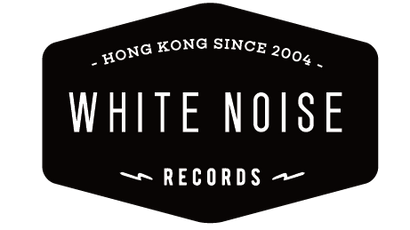Item Notes
2LP Edition
Release Date: 26/9/2014
Label: Big Brother
Description
Tracklisting
A1 Hello
3:21
A2 Roll With It 3:59
A3 Wonderwall 4:18
B1 Don't Look Back In Anger 4:48
B2 Hey Now! 5:41
B3 Untitled 0:44
B4 Bonehead's Bank Holiday 4:03
C1 Some Might Say
5:29
C2 Cast No Shadow 4:51
C3 She's Electric 3:40
D1 Morning Glory 5:03
D2 Untitled 0:39
D3 Champagne Supernova
7:27
You may also like

李志 Li Zhi - Best Selection Songs 2004-2018 (Volume.2) "Ballads (叙事歌)"
Sale priceFrom HK$230.00
In stock
![Minuano - Love Logic [PRE-ORDER, Colored Vinyl Release Date: TBC-FEB-2026]](http://whitenoiserecords.org/cdn/shop/products/Minuano-LoveLogic2_{width}x.jpg?v=1641548842)
Minuano - Love Logic [PRE-ORDER, Colored Vinyl Release Date: TBC-FEB-2026]
Sale priceFrom HK$300.00
In stock
my little airport - 介乎法國與旺角的詩意 Poetics – Something Between Montparnasse And Mongkok (CD Edition)
Sale priceHK$150.00
In stock
my little airport - 香港是個大商場 Hong Kong Is One Big Shopping Mall (CD Edition)
Sale priceHK$150.00
In stock




































![The Smile - Wall of Eyes [PRE-ORDER, Vinyl Release Date: 26-Jan-2024]](http://whitenoiserecords.org/cdn/shop/files/the-smile-wall-of-eyes-pre-order-vinyl-release-date-26-jan-2024_{width}x.jpg?v=1700121449)
![The Smile - Wall of Eyes [PRE-ORDER, Vinyl Release Date: 26-Jan-2024]](http://whitenoiserecords.org/cdn/shop/files/img32806_the-smile-wall-of-eyes-pre-order-vinyl-release-date-26-jan-2024_{width}x.jpg?v=1700121452)









![my little airport - 跟你開玩笑 [PRE-ORDER, Release Date: 17-Dec-2022]](http://whitenoiserecords.org/cdn/shop/products/my-little-airport-_E8_B7_9F_E4_BD_A0_E9_96_8B_E7_8E_A9_E7_AC_91-pre-order-release-date-17-dec-2022_{width}x.jpg?v=1665575387)


![Pulp - More [PRE-ORDER, Release Date: 6-JUNE-2025]](http://whitenoiserecords.org/cdn/shop/files/pulp-more-pre-order-release-date-6-june-2025_{width}x.jpg?v=1746185001)






























